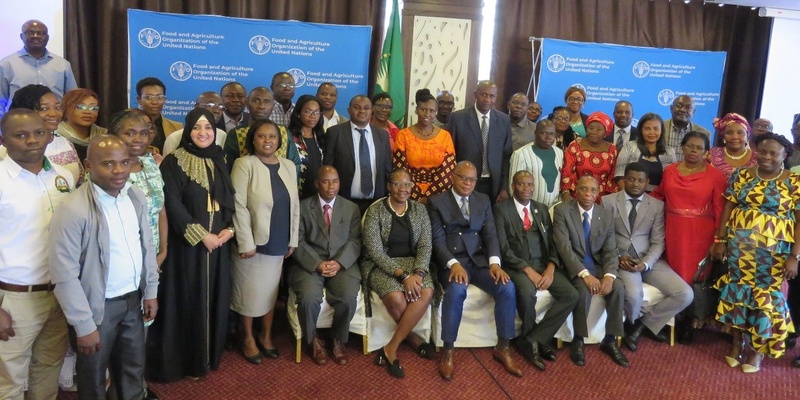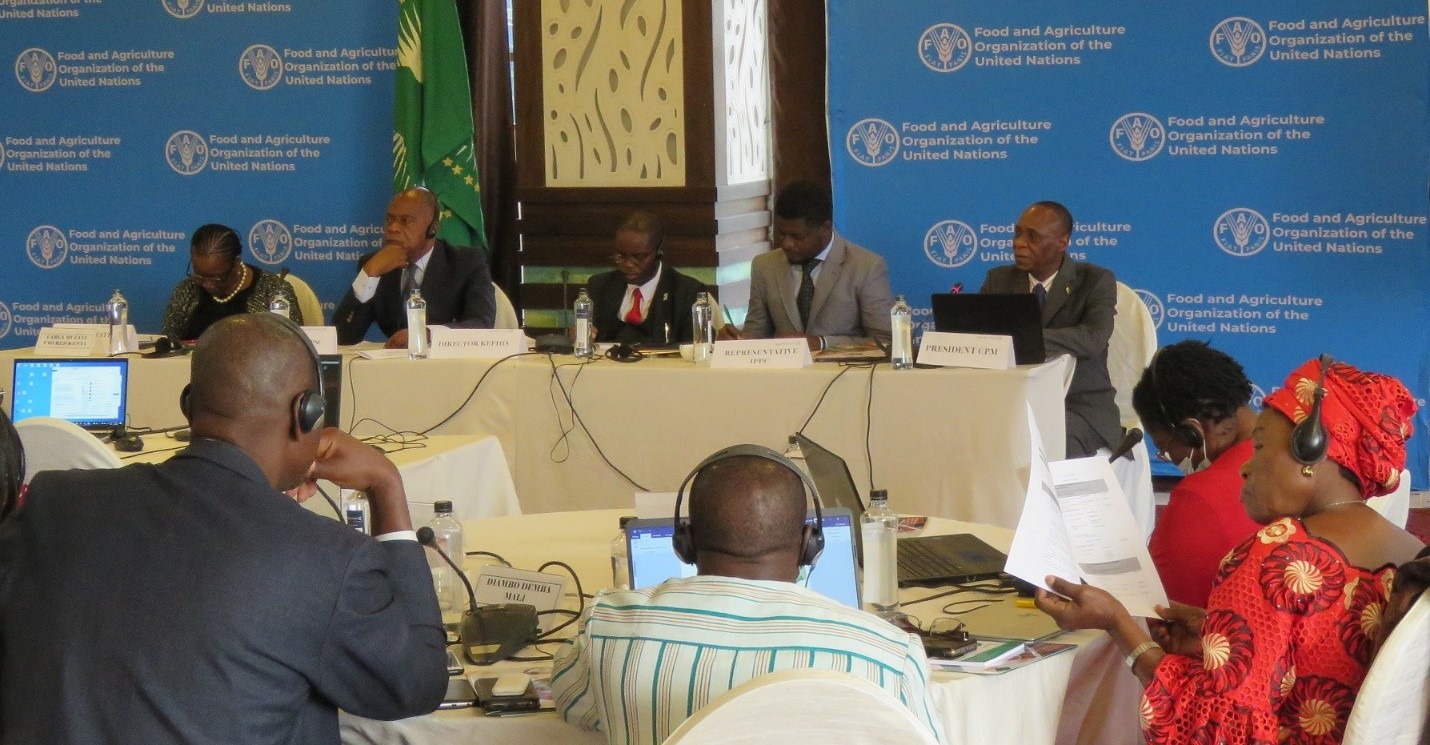Vision of an Africa phytosanitary program presented at the 2022 IPPC Regional Workshop
Posted on Tue, 25 Oct 2022, 07:24

Rome, 21 October 2022. The International Plant Protection Convention (IPPC) Regional Workshop for Africa was held from 6-8 September 2022 in Nairobi, Kenya, organized by the IPPC Secretariat in collaboration with the Inter-African Phytosanitary Council of the African Union (AU- IAPSC), the Plant Protection Organization of Kenya (KEPHIS) and the Food and Agriculture Organization of the United Nations (FAO) office in Kenya.
Fifty-eight participants from 22 Contracting Parties as well as observers from international organizations attended the workshop in hybrid format. Participants at the regional workshop discussed the comments on the draft International Standard for Phytosanitary Measures (ISPMs) and IPPC guides submitted during the 2022 IPPC consultation. Attendees also discussed phytosanitary topics of interest among national plant protection organizations in the region.
IPPC Secretary Osama El-Lissy, addressing the participants remotely from Rome, presented a vision for a future regional phytosanitary program that will support African countries. He noted that the spread of invasive plant pests remains a persistent problem which concerns the entire IPPC community and is a major challenge for national phytosanitary systems.
''Pests do not respect political boundaries and can move either naturally or with human assistance,” El-Lissy said. “They can cause damage to crop production including food crops. They negatively impact the environment at national and regional level, as well as the international trade of agricultural products,” he added. In addition, world hunger has worsened wherein 828 million people were hungry in 2021, or 46 million more than in 2020 and 150 million more than in 2019, according to the latest FAO report on the State of Food Security and Nutrition in the World.
Based on these worrying observations, an inclusive and coordinated action is desired on the part of all the stakeholders involved in food security, environmental protection and international trade of plants and plants products.
The IPPC Secretary also presented solutions and solicited feedback from contracting parties who were present at the workshop. The preferred potential solution is to design and implement the Africa phytosanitary programme using a coordinated approach among the IPPC community, particularly NPPOs and RPPOs, FAO Regional and Sub-regional offices, and regional economic communities.
This programme will focus on two main components: safeguarding of plants and plant resources to include surveillance, information management system and early warning system; and safe trade to cover, among other things, the establishment of pest free areas, import requirements and export certification. The implementation approach that has been considered will be to start the first year with two pilot countries from each sub-region and to gradually extend the program to the entire region.
The IPPC Secretary clarified that such a program will require a huge amount of resources, however, the costs will be insignificant compared to the positive consequences that prevention of plant pests will have on the environment and the economy.
The proposed program was particularly well received by African contracting parties at the workshop. Participants discussed on one hand, the need to choose pilot countries that have significant activity in the trade of plant products and, on the other hand, to reaffirm the need for close collaboration between the IPPC, AU-IAPSC and FAO to create synergies with the new continent-wide strategy on plant protection.


